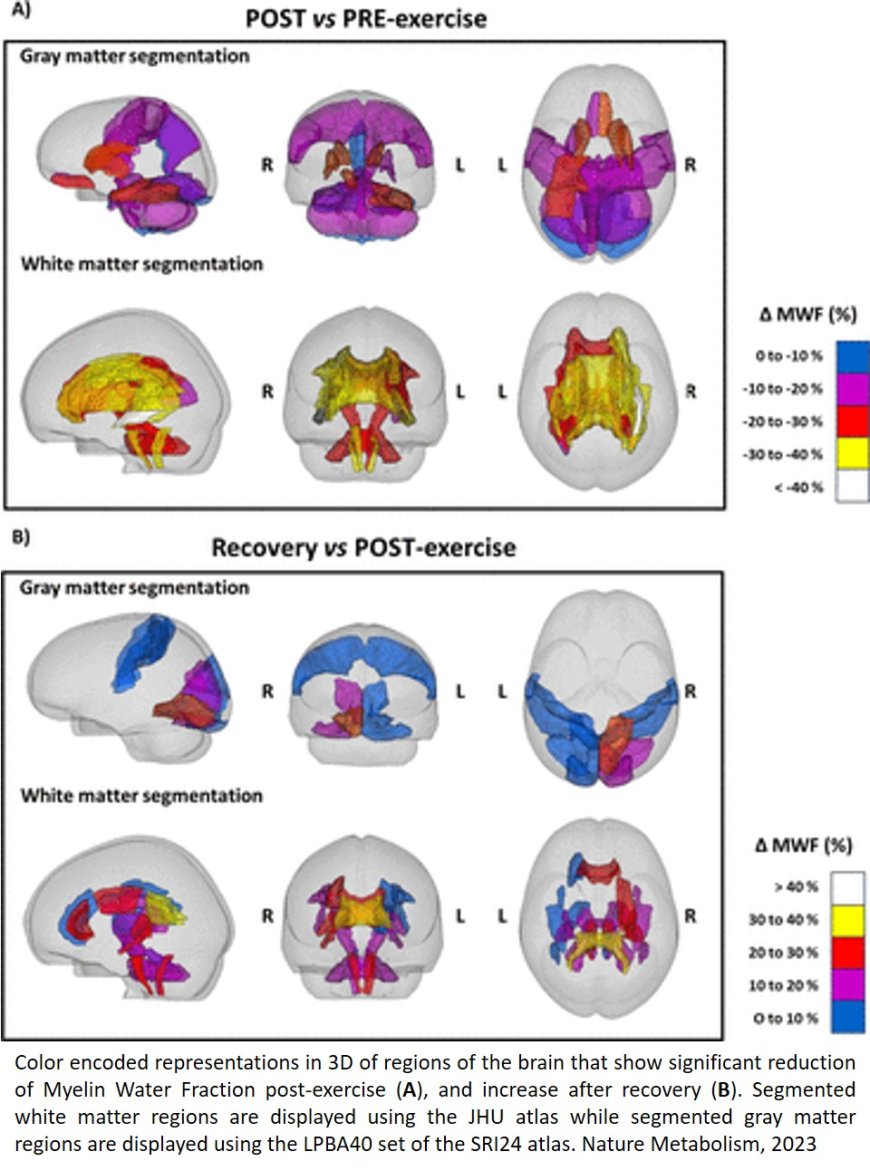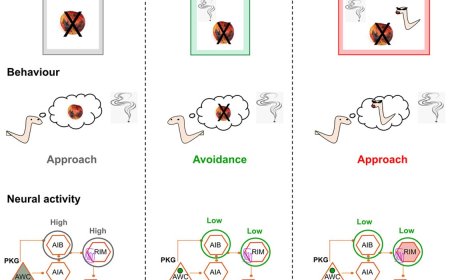The brain utilizes myelin during endurance exercise

Exercise for a long period of time forces the human body to resort to its energy reserves. When running a marathon, for example, the body mainly consumes carbohydrates, such as glycogen, as a source of energy, but it resorts to fats when the glycogen in the muscles is used up. Myelin, which surrounds neurons in the brain and acts as an electrical insulator, mainly comprises lipids, and previous research in rodents suggests that these lipids can act as an energy reserve in extreme metabolic conditions.
A study conducted by researchers shows that people who run a marathon experience a decrease in the amount of myelin in certain regions of the brain. According to the study published by Nature Metabolism, this effect is completely reversed two months after the marathon.
The researchers used magnetic resonance imaging to obtain images of the brains of ten marathon runners (eight men and two women) before and 48 hours after the 42-kilometre race. Likewise, the researchers took images of the brains of two of the runners two weeks after the race, and of six runners two months after the race as a follow-up.
By measuring the fraction of myelin water in the brain —an indirect indicator of the amount of myelin— the authors discovered “a reduction in the myelin content in 12 areas of white matter in the brain, which are related to motor coordination and sensory and emotional integration”, explained the senior author. Two weeks later, “the myelin concentrations had increased substantially, but had not yet reached pre-race levels”, added the first author. The authors saw that the myelin content had recovered fully two months after the marathon.
The researchers concluded that “myelin seems to act as an energy source when other brain nutrients are depleted during endurance exercise, and that further research is needed to establish how extreme exercise is related to the amount of myelin in the brain. Trials in a larger cohort are needed”, said the author.
This study reveals that “brain energy metabolism is more complex than previously thought. The use of myelin as brain fuel opens up new insights into the brain's energy requirements”, explained the author. Furthermore, according to the authors, more studies are needed to assess whether these changes exert any effect on the neurophysiological and cognitive functions associated with these regions, but they point out that most of the myelin in the brain is not affected.
The results of this work break new ground in the energy role of healthy, aging and diseased myelin in the brain. “Understanding how the myelin in the runners recovers quickly may provide clues for developing treatments for demyelinating diseases, such as multiple sclerosis, in which the disappearance of myelin and, therefore, of its energy contribution, facilitates structural damage and degeneration,” said the author. At the same time, the researchers are keen to stress that running marathons is not harmful for the brain; “on the contrary, the use and replacement of myelin as an energy reserve is beneficial because this exercises the brain's metabolic machinery”.
https://www.nature.com/articles/s42255-025-01244-7
https://sciencemission.com/brain-myelin-content-upon-marathon-running













